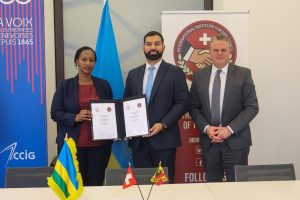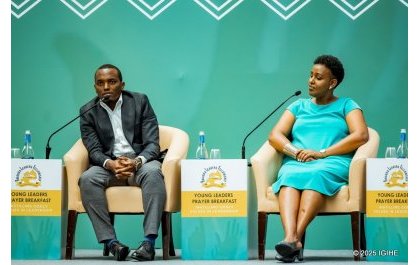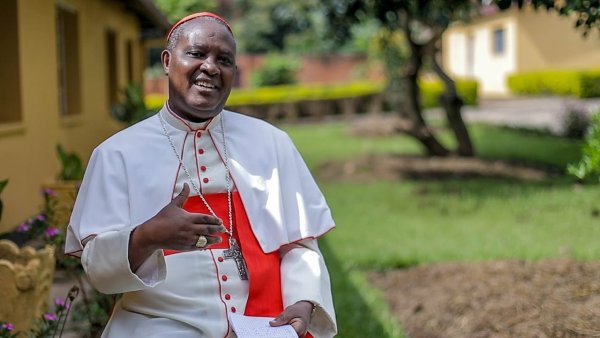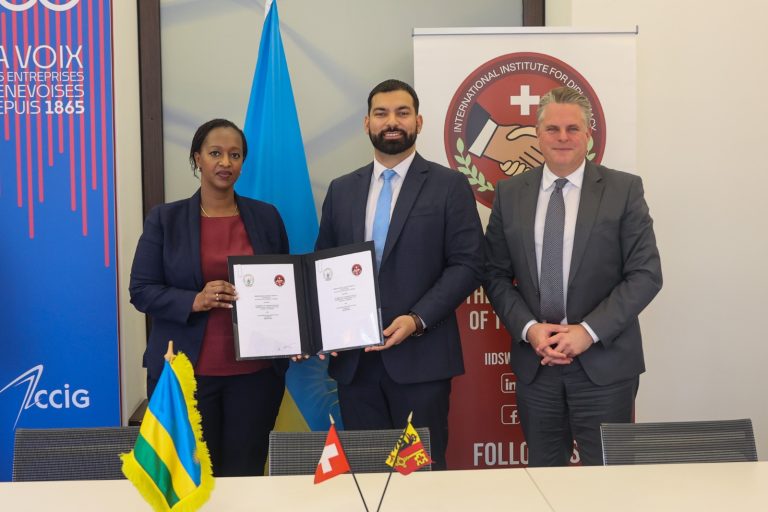Dr. Muyombo Thomas, popularly known as Tom Close, and his wife Ingabire Ange Tricia, have revealed some of the values and lessons that have kept their marriage strong for 12 years. The couple shared their testimony during the Young Leaders Prayer Breakfast, where they emphasized patience, constant communication, and teamwork as essential foundations for a lasting union.
During the discussion, Tricia spoke first, noting that while their marriage is built on strong values, it has not been without challenges. She explained that time management was one of the earliest hurdles they faced, especially since Tom Close is both a musician and a medical doctor.
“When we first got married, time was our biggest challenge. He was already a well-known artist, later became a doctor, and still managed to start writing and illustrating children’s books. It was not easy to balance everything. I wanted to support him, but I also needed time for myself and for the children,” Tricia said.
She recalled turning to prayer before approaching her husband about sharing responsibilities more equitably.
“I told him, ‘Even though you have many duties and you’re working hard for the family, at home you are the king. I need you as my husband, and the children need you as their father. Please try to give us even a little of your time after work.’ He listened, and because God was in it, things started to change.”
From that point, they began splitting household duties. For instance, when he came home and found her bathing their daughters, he would bathe their sons. On some days, he even took over the cooking, a task he enjoys.
“In those moments, he would call the children to help him make snacks, and I could see how happy they were just spending time together. It became clear that small gestures made a big difference,” she added.
Tricia said that late-night conversations after the children were asleep also became crucial to their bond and even contributed positively to Tom Close’s professional life.
The couple, who share five children, have also learned to compromise on smaller issues. Tricia recounted how they used to clash over what to listen to in the car—she preferred music, while he preferred news updates. “It bothered me, but I didn’t say anything for years. Recently, I told him that sometimes listening to music might help him relax after work. But he explained that for him, music is work, so he preferred the news. I realized I should have spoken up earlier.”
For his part, Tom Close highlighted how external voices—whether from relatives, friends, or social media—can strain a marriage. He recalled how, in the early years of their union, rumors circulated online that they had a child with albinism and had even separated.
“At first I ignored it, but my wife received calls from family members asking what was going on. We had to explain to them directly, and eventually, I used social media myself to address and dismiss the rumors.”
He stressed that spending quality time together and making joint decisions has been central to their success. “I don’t make decisions alone. We plan as a family, even long-term, to avoid unnecessary waste or conflict.”
Umutoni Gatsinzi Nadine, Director General of the National Child Development Agency, who also attended the discussion, praised the couple for being a role model to young families.
“I commend you for showing that young families can thrive when they build on shared values and communication,” she said.
Meanwhile, Rwanda Leaders Fellowship member Bariho Lambert emphasized the importance of preparing couples for marriage beyond the wedding day. “It’s not enough to only prepare for the ceremony. Couples must also learn to align their expectations and deal with the emotional scars of their past, as these are some of the hidden issues breaking families today,” he noted.
Author: Justinmind HARERIMANA

















